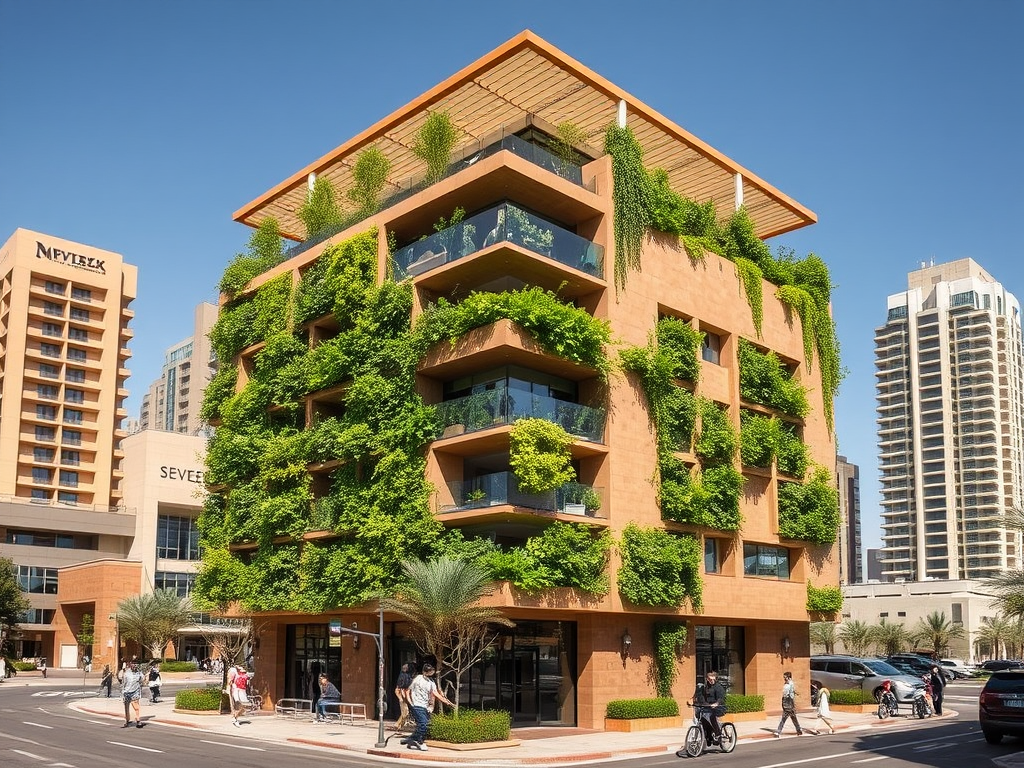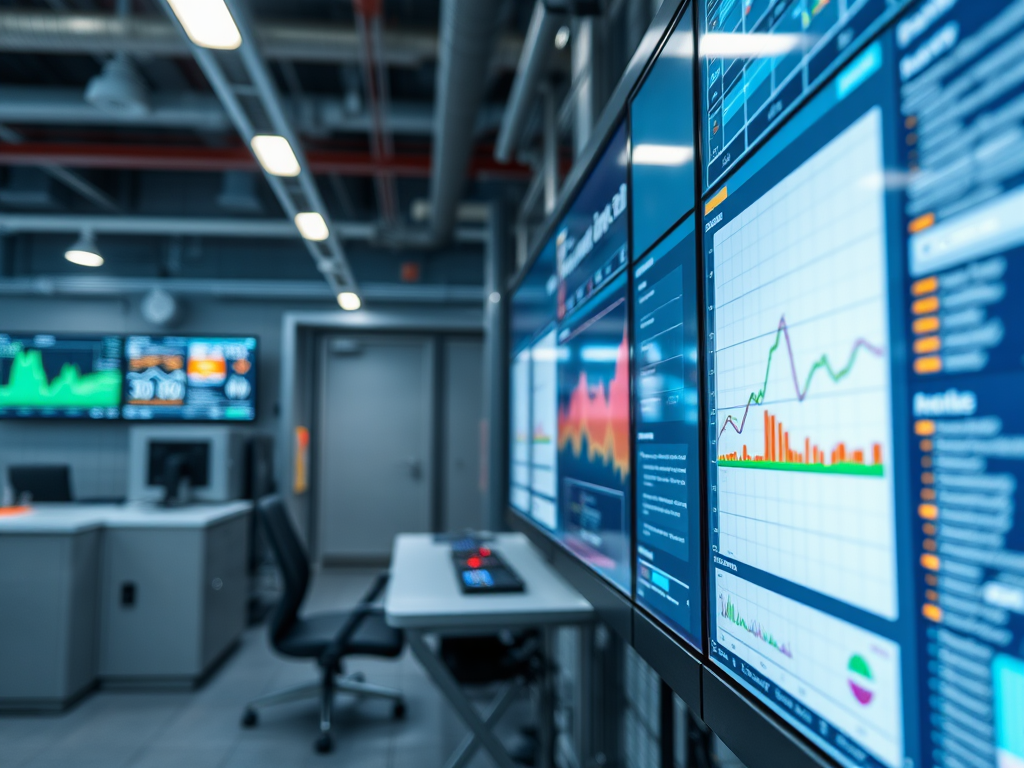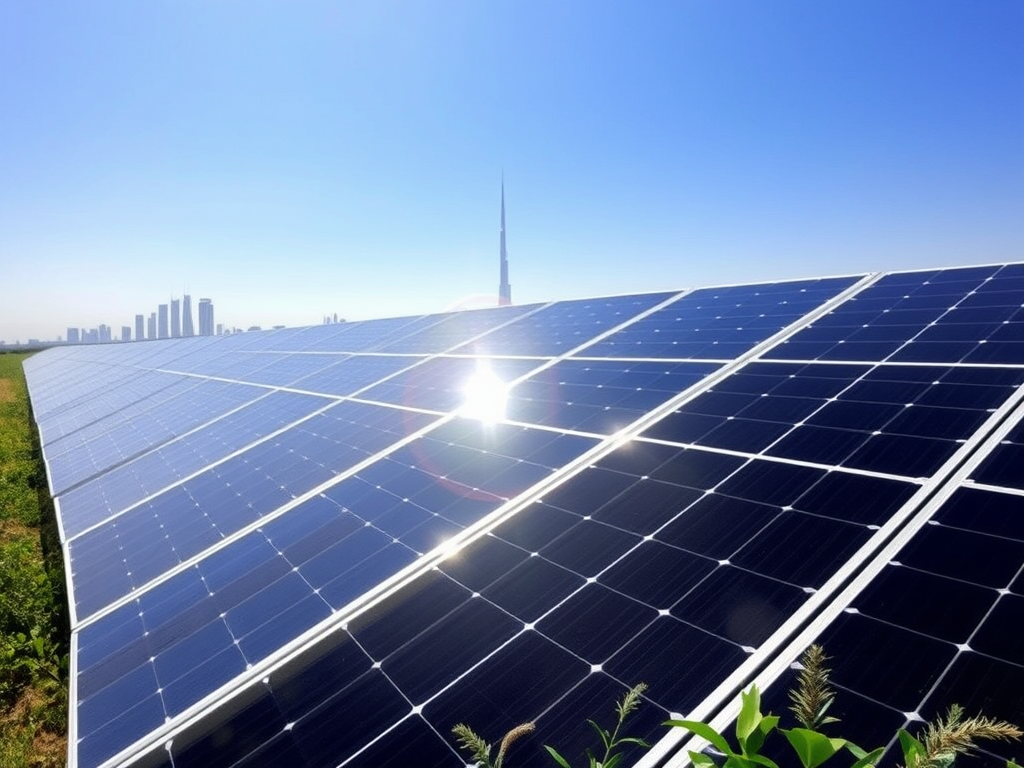Dubai is rapidly emerging as a leader in the energy efficiency technology sector, driving investments aimed at sustainable growth and development. This article delves into the current investment trends shaping this vibrant landscape, highlighting the key areas receiving attention and funding. As the UAE strives to align its goals with the Paris Agreement and the UAE Vision 2021, the focus on energy efficiency technologies has never been more crucial. This includes advancements in smart grids, renewable energy sources, and energy-efficient buildings. Understanding these trends is vital for investors looking to capitalize on opportunities in Dubai’s dynamic market.
Growing Demand for Renewable Energy Sources

The demand for renewable energy sources in Dubai is skyrocketing as the government pushes for a substantial increase in its clean energy output. This trend is driven by Dubai’s “Carbon Neutral 2050” initiative, which aims to enhance energy efficiency while reducing carbon emissions. Key areas of investment within the renewable energy sector include solar power, which has already seen significant growth thanks to projects like the Mohammed bin Rashid Al Maktoum Solar Park.
Major investments are being funneled into the following categories:
- Solar Energy:
- Wind Energy Projects:
- Hydrogen Technology:
- Waste-to-Energy Solutions:
Investors are increasingly interested in solar energy due to its vast potential in the sun-drenched region. With innovative technologies and financing mechanisms being introduced, Dubai is setting the stage for significant returns on investment while contributing to a sustainable future.
Advancements in Smart Grids and Energy Management Systems

Smart grids offer significant investment opportunities by enhancing the efficiency of energy distribution. These advanced systems utilize digital technology to monitor, automate, and optimize the flow of electricity. As Dubai transforms its energy infrastructure, the rollout of smart grids is paramount to this evolution.
Within this realm, investments are focusing on:
- Distribution Management Systems (DMS): Streamlining grid operations to decrease outages.
- Smart Meter Technology: Empowering consumers to monitor and manage energy use.
- Advanced Analytics: Leveraging data to predict demand and improve energy flow.
These advancements not only improve the reliability of energy supply but also enhance energy efficiency, making them a focal point for investors keen on supporting Dubai’s technological leap.
The construction of energy-efficient buildings represents a pivotal trend in Dubai’s investment landscape. With the real estate sector rebounding post-pandemic, developers are increasingly prioritizing sustainability in their projects through energy-efficient designs and technologies. This aligns with Dubai’s sustainability regulation endeavors aimed at reducing energy consumption RIBA energy standards in new construction.
Considerations for investments in energy-efficient buildings include:
- Passive Design Strategies: Utilizing natural ventilation and light.
- High-Performance Insulation: Minimizing energy loss.
- Smart Building Technologies: Automating control systems for heating, lighting, and cooling.
- Green Certifications: Compliance with accreditation programs like LEED.
These investments are not only environmentally friendly but also appeal to a growing demographic of eco-conscious consumers, thus improving market competitiveness.
The Role of Government Policies and Incentives
Government support plays an instrumental role in shaping investment trends in Dubai’s energy efficiency technologies. Several policies and incentives have been introduced to encourage both local and foreign investments in sustainable energy solutions. Programs such as the Dubai Clean Energy Strategy 2050 serve to provide a clear roadmap for integrating clean energy into the city’s infrastructure.
Investors can benefit from initiatives like:
- Subsidies for renewable energy projects
- Tax exemptions for energy-efficient upgrades in existing buildings
- Government grants for research and development of green technologies
Such conducive policies not only promote investment but also help in achieving the broader goals of energy efficiency and sustainability.
Conclusion
In conclusion, the investment trends in Dubai’s energy efficiency technologies are indicative of a broader commitment to sustainable development. With a focus on renewable energy sources, smart grids, and energy-efficient buildings, alongside robust government support, the prospects for investors in this sector appear exceptionally promising. As Dubai continues on its mission to be a global leader in sustainability, the opportunities for investment will only expand, creating a multifaceted landscape ripe for innovation and growth.
Frequently Asked Questions
1. What is the primary focus of Dubai’s energy efficiency initiatives?
Dubai’s energy efficiency initiatives primarily focus on reducing carbon emissions and increasing the use of renewable energy sources while enhancing the overall sustainability of the city.
2. How does government support affect investments in energy efficiency technologies?
Government policies and incentives play a critical role in attracting investments by reducing costs, providing funding, and streamlining processes for energy projects.
3. What types of energy-efficient building technologies are most popular in Dubai?
Popular energy-efficient building technologies in Dubai include high-performance insulation, smart building management systems, and passive design strategies that maximize natural resources.
4. What are the benefits of investing in smart grid technologies?
Investing in smart grid technologies offers enhanced efficiency, reliability, and the ability to integrate renewable energy sources while decreasing operational costs and improving energy management.
5. Are there any risks associated with investing in Dubai’s energy sector?
As with any investment, risks may include market volatility, regulatory changes, and technological advancements. However, ongoing government support and a strong regulatory framework can mitigate many of these risks.
